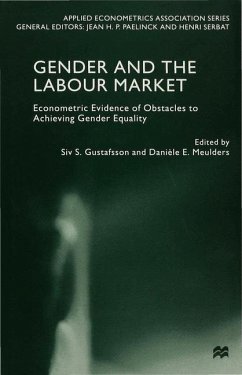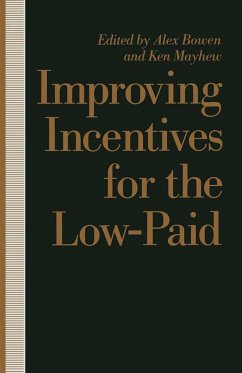
Fordism and Flexibility
Divisions and Change
Herausgegeben: Burrows, Roger; Gilbert, Nigel; Pollert, Anna

PAYBACK Punkte
38 °P sammeln!
During the 1980s there were profound changes in the labour process towards the 'flexible worker' and in the labour market towards a 'flexible workforce'. Three approaches to explain these changes provide the focus for this book: Marxist regulation theory; the notion of flexible specialisation associated with the 'new' institutional economics; and the model of the flexible firm derived from managerialist literature. In the book, the claims made by these approaches are investigated and their implications are examined in relation to emerging patterns of work in advanced societies.














